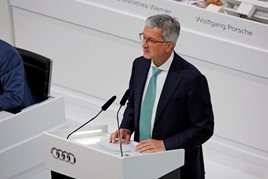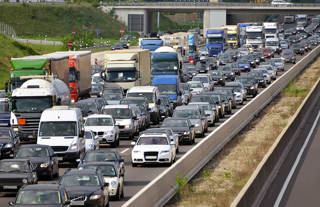The European Commission (EC) says car manufacturers may be attempting to ‘cheat’ new vehicle emissions tests in a bid to ‘manipulate’ future targets imposed by the EU.
Through data collected in member states and assessed by the EC’s Joint Research Centre, the Commission says it has detected manufacturers may be using the transition from the old emissions testing regime – the NEDC test – to the new Worldwide Harmonised Light Vehicles Test Procedure (WLTP) – to inflate WLTP emission levels.
In November, The European Commission demanded that car manufacturers cut CO2 emissions by 15% between 2020 and 2025, and 30% by 2030.
“Inflated WLTP emissions in 2020 would result in less strict WLTP CO2 emission targets applying in 2021,” Commissioners Miguel Canete and Elzbieta Bienkowska say in a joint letter to the sustainability minister Elisabeth Kostinger. “As the 2021 WLTP targets also act as the starting point for the 2025 and 2030 targets, such inflation would in turn lead to lower real life emission reductions in the target years.
“As only some manufacturers might inflate the starting point, this could also lead to distortion of the level playing field between manufacturers.”
Responding to the allegations, the European Automobile Manufacturers’ Association (ACEA) said it fully agrees that CO2 values “should not be artificially increased on purpose in any way that would undermine the post-2020 CO2 targets”.
All parties, it said, should ensure that these future CO2 reductions will be delivered in practice and “not through any optimisation of the testing procedure”.
The trade body added that it was ready to work with the European Commission to help make the current regulation even more robust if that proves necessary.
However, it stressed that artificially increasing WLTP figures was not an industry-wide problem. Indeed, it said that increasing CO2 emissions on purpose to inflate the WLTP baseline would not only be counterproductive in the current CO2 discussions, but may also hinder a manufacturer’s competitiveness.
In fact, it said the majority of EU member states have a taxation scheme based on CO2 emissions and higher CO2 emissions would therefore result in higher costs for the customer – making such vehicles less attractive.
Furthermore, manufacturers are competing on fuel consumption values (which are directly related to CO2 emissions). Therefore, the ACEA says that a manufacturer that would over-declare CO2 values could “dramatically lose their competitiveness and market share, which is in no one’s interest”.
























The Engineer - 27/07/2018 15:56
Artificially increasing? I think it more likely that the NEDC cycle was a lot easier to 'cheat' and now WLTP is exposing this with more 'honest' results. The EU is worried about future issues, but nation states have probably been cheated out of huge amounts of tax by under-rated real emissions.